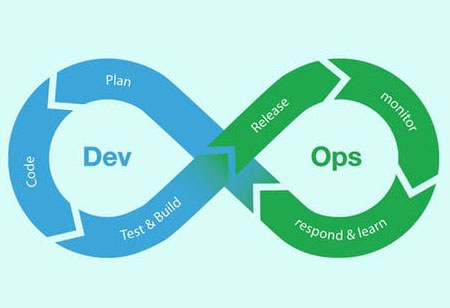THANK YOU FOR SUBSCRIBING
DevOps and Build Engineering: Leveraging Advanced Tech to Connect
Agility of any business to transform and adapt to market conditions is perhaps the most vital aspect of managing today’s enterprises.

By
Apac CIOOutlook | Monday, April 15, 2019
Stay ahead of the industry with exclusive feature stories on the top companies, expert insights and the latest news delivered straight to your inbox. Subscribe today.
Agility of any business to transform and adapt to market conditions is perhaps the most vital aspect of managing today’s enterprises. With digitalization of almost every aspect of running an enterprise, it is safe to say that IT agility translates either the success or failure of such adaptations. Smaller and new age businesses are better able to adapt while large and established enterprise struggle or are too slow to adapt.
Large enterprises have been executing in an established, traditional way for decades and have solidified their existing processes and decision-making skills. There is no apparent option for new age businesses. Because of their drive to create something new they have to be agile. Either they opt to have cloud-native technology support or even with traditional, IT is able to embrace agile automation and continuous delivery paradigms to stay nimble.
Three main elements confine large companies, organization structure, legacy technology stack, and culture. The combination of agile and DevOps have been successfully implemented by a lot of large and small scale enterprises to transform the way solutions are delivered—faster, cheaper, and better.
Check out: Top DevOps Consulting/Services Companies
Before DevOps, there were discrete divisions between coding, done by developers and engineers, and deployment, done by Ops. Certain changes have taken place due to the adaptation of DevOps. Enterprises have traded in security for speed. Speed has now taken greater priority over fixing vulnerabilities which can always be addressed later.
The risk of losing profit is always greater than the risk of an unknown potential threat. Agility trumps certainty to reach the market faster. Open source has overtaken proprietary code due to greater innovation, lower costs and transparency it delivers. On the contrary to focusing on creating proprietary code, developers can quickly come up with a solution by assembling an open source code, accelerating time to market. And the ability to take from what has already been created can free up the DevOps teams to innovate and build IP for an enterprise’s efforts.
DevOps thus provides important benefits to software development. Automation helps in an easier transition of DevOps. Automating the build pipeline for open source language ensures build reproducibility and makes dependency management plausible.
See also:
Prnewswire | CIO Review
Youtube | CIO Review





